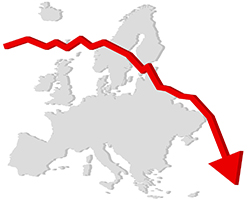5 May 2015
Leading social scientists join forces to examine the drop in stranger and acquaintance violence
 Image: Pixabay
Image: Pixabay
Determining why there has been a decline in stranger and acquaintance violence in England, Wales and the EU over the last two decades will be the focus of a new research project led by Loughborough University.
The study by The Violence Trends Project, which is made up of national and international criminologists and sociologists from the UK, Canada and the Netherlands, will run until July 2016, and will identify changes in personal security and routine activities which might help to explain the decline, such as the growing trend for carrying a personal alarm.
National and international datasets[1] including the Crime Survey for England and Wales (CSEW) – formerly the British Crime Survey – and the International Crime Victim Survey (ICVS) will be analysed at a time when the urgency to gain insights about violence prevention have never been more prominent. Adding to this the recent public spending cuts and increasing austerity measures, the cost of violence to the UK economy is estimated at £13 billion annually[2].
While the majority of violence incidents involve strangers and acquaintances, the Office for National Statistics 2015 data shows that stranger violence has fallen by 45 per cent from 1 million offences at its peak in 1995 to 553,000 offences in 2013/14. And acquaintance violence has fallen by 73 per cent from 1.8 million offences at its peak in 1995 to 500,000 offences in 2013/14.
The project, funded by the Economic and Social Research Council (ESRC), Secondary Data Analysis Initiative, Phase 2, will identify measures that offer effective protection from violence and repeat violence overall, and to specific population sub-groups according to their socio-economic attributes and area of residence, such as, for example, inner city residents of different age groups, social classes, and income.
Read the press release for more information.














